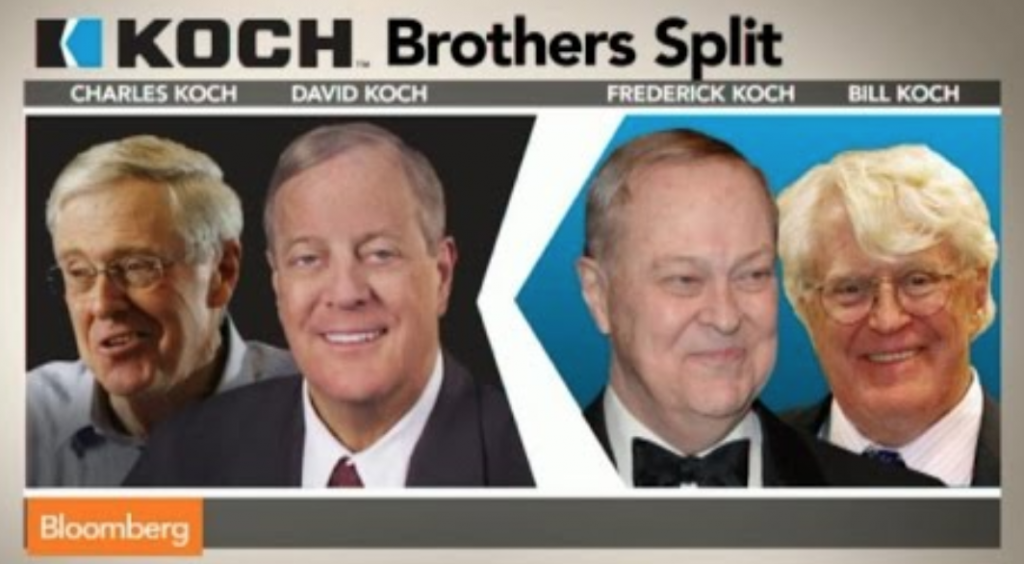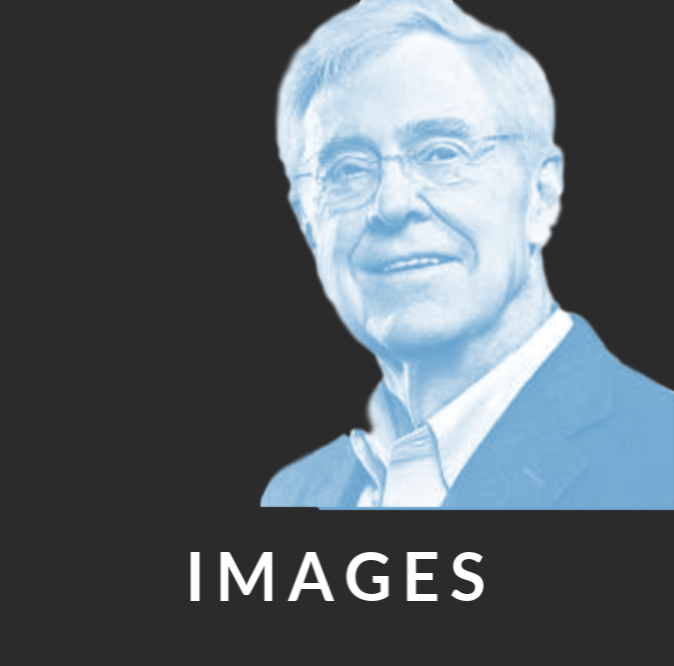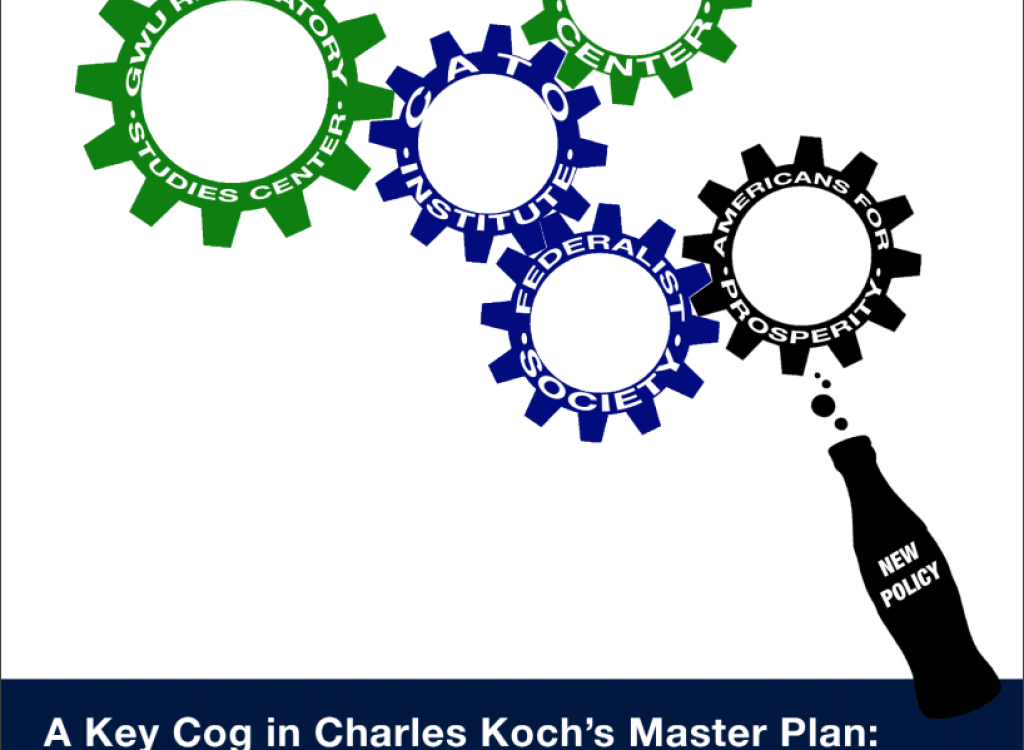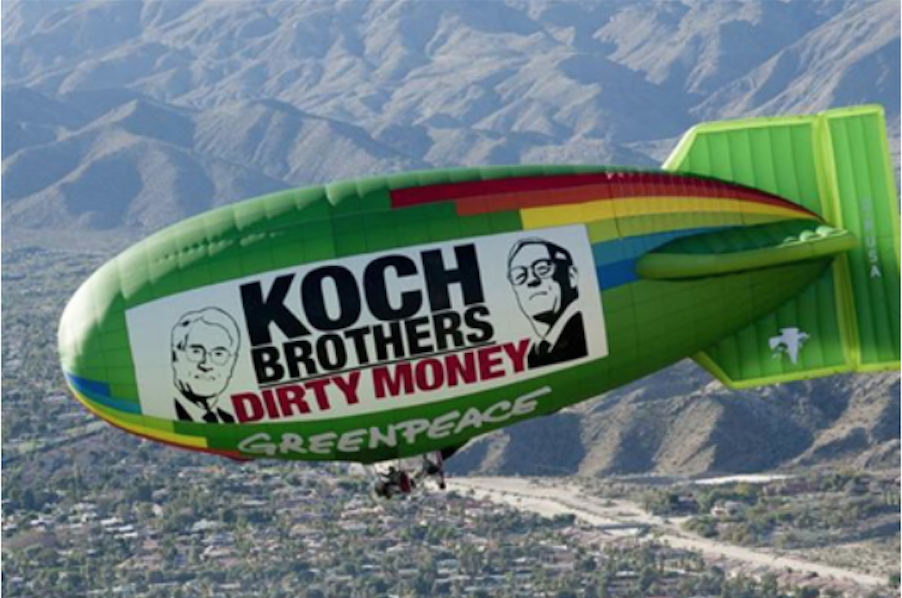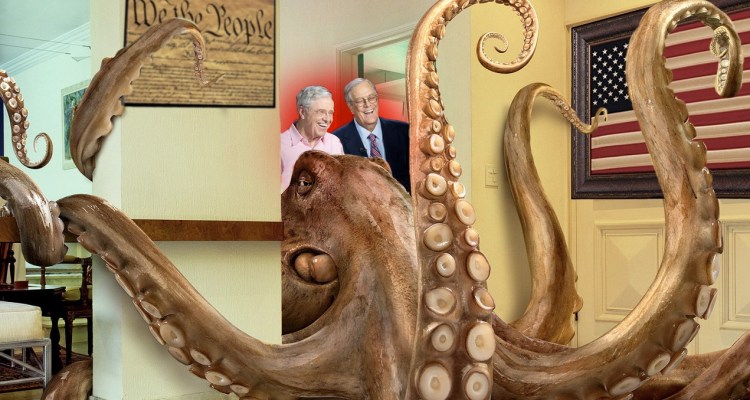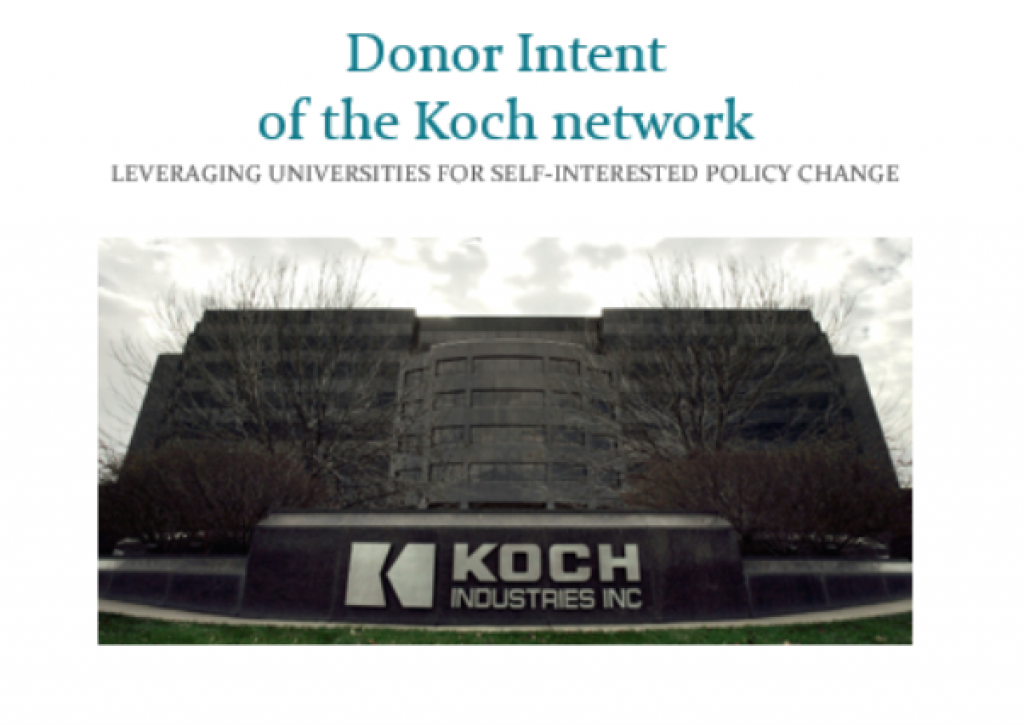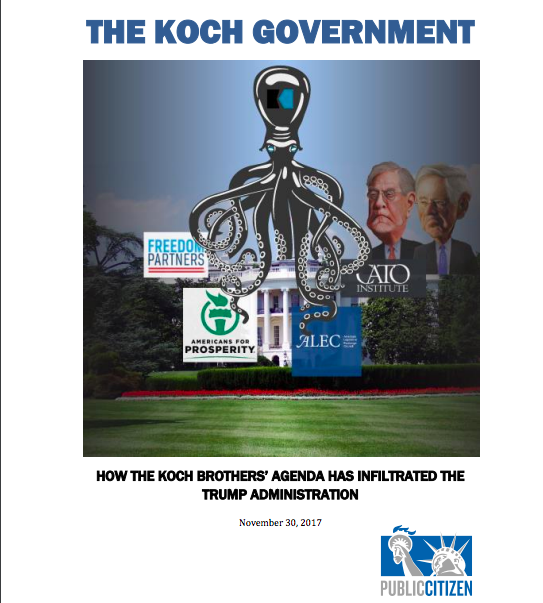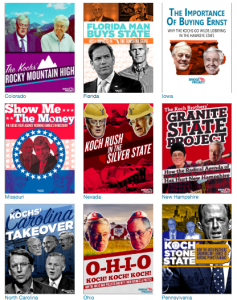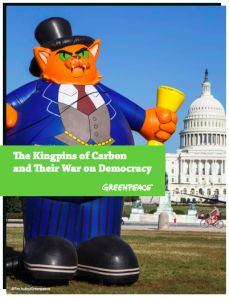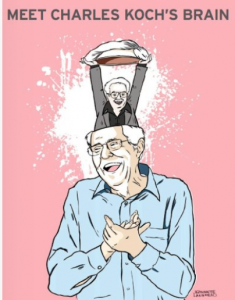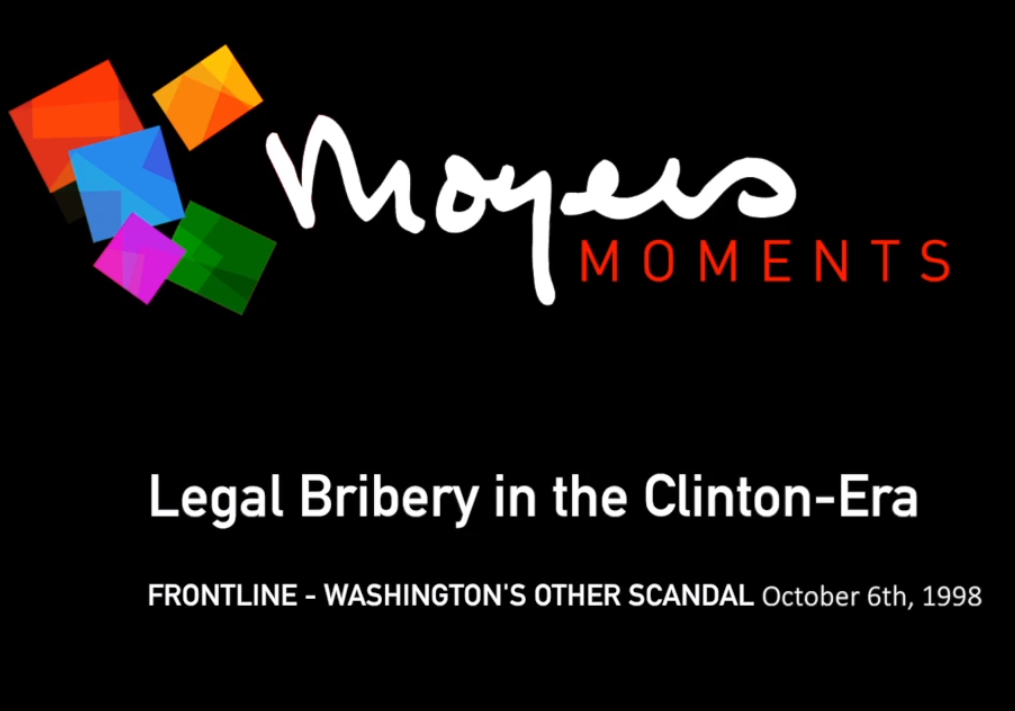RESOURCES
FEATURED SPECIAL REPORTS ABOUT THE KOCH EMPIRE
This report by Public Citizen, spearheaded by Taylor Lincoln, the Research Director of Congress Watch, details how Koch money has influenced the work of an influential research center at George Washington University in Washington, DC. It also documents how the anti-regulatory work funded by the fortune of one of the richest men in the world is then deployed by other groups also funded by Charles Koch and the organizations he controls.
This report and its related website provide data about how much of the Koch family fortune has been spent to thwart climate action. This research tool, created by Greenpeace USA, documents known donations since the 1980s.
In this special edition of the Hightower Lowdown, Jim Hightower describes the array of tools that Charles Koch has used to dismantle our democracy and advance his own agenda. Working with Jay Harris, Hightower maps the Koch network and analyzes it based on his expertise in exposing corporate distortion of public policy — with his evocative style of storytelling.
This extensive report by UnKoch My Campus provides examples of how the Koch fortune has been used to influence universities, including who they hire and what they teach, to advance Charles Koch’s personal/corporate agenda.
This 2017 report accounted for 44 appointees to the Trump Administration who came from jobs within the Koch network, a year into the Trump presidency. The report also tracked Koch alumni who were nominated for other positions.
Public Citizen published an interactive database of their findings to accompany the full report.
In 2015 and 2016, American Bridge published 22 reports were on Koch’s political work. These include Koch’s impact on the politics of 10 different states, key front groups controlled by Koch (Libre Initiative, Generation Opportunity, Concerned Veterans of America) and on Koch’s political strategy on several issues (Criminal Justice Reform, privatization of Public Lands, attacks on Medicare).
This report examines the contributions of fossil fuel executives to politicians and electioneering efforts, examining traditional spending and “outside spending” that exploded following the 2010 Citizens United Supreme Court ruling. The report specifically hones in on the spending of numerous known Koch network donors.
This report details how Charles Koch was influenced by anarcho-capitalist Robert LeFevre. It discusses how Charles Koch funded LeFevre’s Freedom School and Rampart College to advance their shared agenda to spread LeFevre’s reactionary lectures as widely as possible. It also details how these Koch-funded efforts embraced scholars who were Holocaust deniers. And, it also helps document how another publication funded by Charles Koch, Reason magazine, amplified their claims through a project on “historical revisionism.”
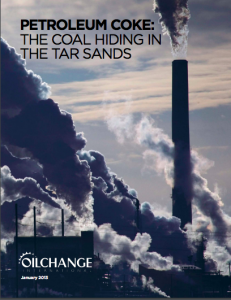
This 2013 report details companies that produce, trade, and burn petroleum coke, a byproduct of oil refining. Oxbow Carbon, owned by semi-estranged brother Bill Koch, is included among major petcoke traders.
(Note: Koch Industries–which is unaffiliated with Oxbow–is also involved in petcoke via subsidiary KCBX, as included in our articles page).
